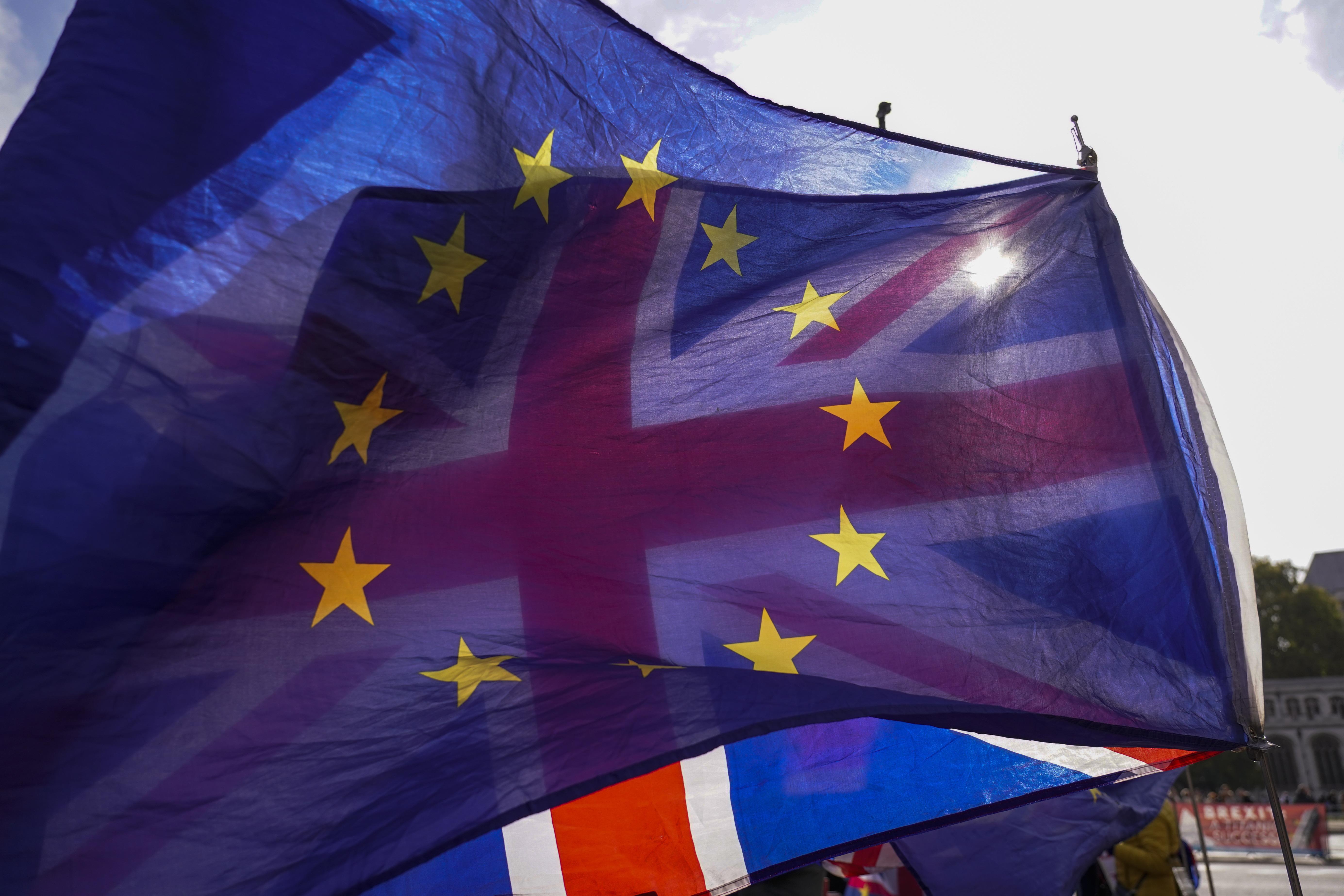 A Union flag waves behind a European Union flag, outside the Houses of Parliament, in London, Oct 19, 2022. (PHOTO / AP)
A Union flag waves behind a European Union flag, outside the Houses of Parliament, in London, Oct 19, 2022. (PHOTO / AP)
LONDON - Britain said on Thursday it would rejoin the European Union's flagship Horizon science research program, ending a two-year post-Brexit standoff with the bloc over science funding.
Under a Brexit trade agreement signed at the end of 2020, Britain negotiated access to a range of EU science and innovation programmes, including Horizon, the EU's largest funding programme for researchers with an annual budget of 95.5 billion euros ($102 billion)
The agreement, which excludes the EU's Euratom nuclear research scheme, signals a further improvement in bilateral relations seven months after a row over trade was resolved.
Prime Minister Rishi Sunak's office said in a statement he had secured "improved financial terms of association" with the Horizon project.
"This is the right deal for the UK, unlocking unparalleled research opportunities, and also the right deal for British taxpayers," Sunak said.
ALSO READ: UK service sector sees opportunities at fair
Sunak's office said Britain would also associate with the European earth observation programme Copernicus, but not with the EU's Euratom program, instead choosing to pursue a domestic fusion energy strategy.
"Today's political agreement on the UK’s participation in Horizon Europe and Copernicus will strengthen science across the whole of Europe," European Commission President Ursula von der Leyen said on messaging platform X, formerly known as Twitter.
Under a Brexit trade agreement signed at the end of 2020, Britain negotiated access to a range of EU science and innovation programmes, including Horizon, the EU's largest funding programme for researchers with an annual budget of 95.5 billion euros ($102 billion).
The EU blocked Britain's participation because of a row over post-Brexit trade rules governing Northern Ireland, but February's resolution of that dispute opened the door to Britain rejoining Horizon Europe.
ALSO READ: UK aviation regulator to review air traffic control failure
Britain had questioned how much it needed to pay to rejoin, having missed two years of the seven year programme, and had guaranteed funding for UK applicants to Horizon while negotiations took place.
The government said Britain would not pay for the time it had been frozen out, and a "clawback" mechanism would compensate Britain if UK scientists received significantly less money than the government put in.
The deal marked "marks another step forward for the EU and UK to work together in the spirit of friendly cooperation on issues of shared interest," they said in a joint statement.


